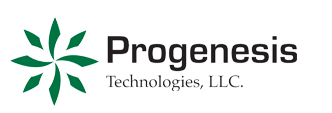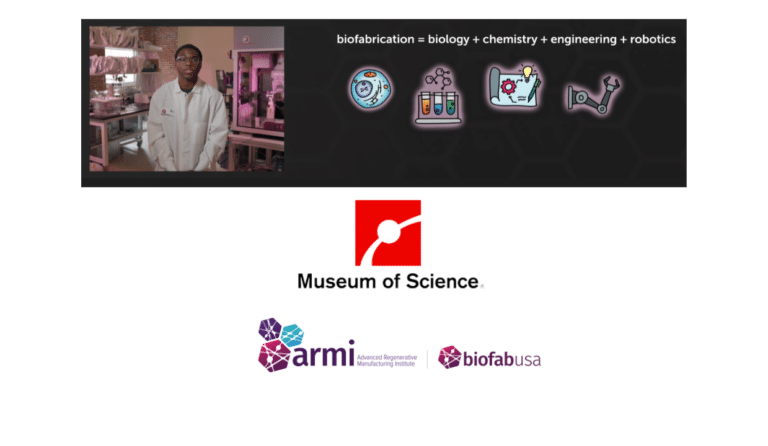For centuries, alginate found in seaweed has inspired botanical, industrial, and pharmaceutical interest.
Because of the high nutrient and alginate content, seaweed has been used as food throughout Asia for centuries and, the Japanese culture used seaweed to treat goiter and other glandular problems as long ago as 300 BC. The Celts noted that seaweed contracted as it dried and then expanded with moisture, so in Scotland during the 18th century, physicians used dried seaweed stem to successfully drain abdominal wall abscesses. And, foreshadowing today’s manufactured alginate innovations, the Romans used seaweed in the treatment of wounds, burns, and rashes.

Progenesis Technologies LLC, a Huntington, WV bio-engineering company, says producing customized molecular scaffolds from alginate products has a “fundamental advantage over seaweed derived alginates in cost efficiencies and customization for various applications,” according to Gardiner F.H. Smith, Executive Chairman. In addition to having the ability to tailor biomaterial for medical applications, Smith added, “Among other physical differences, the estimated current supply of seaweed alginate cannot keep up with the demand for use in a myriad of applications: supply is declining due to over-harvesting, pollution, and climate change.”
Traditional alginate biopolymers are processed for use in industrial applications such as textile manufacturing and water treatment. They are also used in food and personal care products for emulsification and texture. Importantly, they have been used in a number of biomedical applications such as an excipient for pharmaceutical tablets, absorbent materials for OTC stomach products and traditional wound dressings for fluid management.
“Progenesis has invented and patented technology which overcome the obstacles of natural seaweed alginates by employing genetic engineering to produce recombinant alginate which is secreted in bacteria. “Our breakthrough improvements enhance biophysical performance characteristics for current and new applications,” Smith said.
Progenesis produces alginates in 20-30 times the concentration found in non-engineered cellular systems, making fermenter scale-up highly competitive to alginates obtained from seaweed resources, which are currently widely used in industrial and medical applications. The company has created a series of proprietary genetic constructs that stimulates high levels of alginate and optimized media and growing conditions to drive in excess of 100g/L of high grade alginate. Coupled with novel purification cascades suitable for scale up, Progenesis’ alginate constructs are available for collaboration and commercialization on favorable economic terms.
“A defining feature of traditional alginate producers and consumers is their inability to customize the structure and activity of the alginates. In short, seaweed derived alginate is old technology,” Smith explained adding, “This static landscape, combined with the increase costs of goods for seaweed derived alginate provides a tremendous set of product opportunities for Progenesis and its partners.”
“Alginate is a preferred bio-ink due in part to established biocompatibility along with the ability to physically manipulate the material without damaging underlying oligomer structures. However, seaweed derived alginate have limited versatility to modulate tensile strength, absorbency and inclusion of bioactive. Our alginates address these needs in for potential treatments conjugating with active biomolecules such as growth factors and cell therapy components,” noted Smith, adding, “Microbial produced alginates will provide a strong competitive advantage over currently used seaweed alginates.”
In healing of skin wounds, Progenesis is on track for marketing approval of its first product under a 510k filing as a medical device in 2020, having worked in coordination with the FDA for several years in optimization of the expression system, as well as in vitro and in vivo testing for both safety and efficacy – including in a skin ulcer disease model. Smith said, “ARMI consortium partners can play an instrumental role in the development and production of alginate based skin wound covers, utilizing imaging and 3-D bio printing for a multi-layered functionality sized specifically for each individual wound. We have developed a clinical network in North America with leading physicians though leaders who are eager to start applying these solutions to patients dire need of improved therapies,” Smith also foresees engineered alginates with application in medical surgical devices such as heart valves.
Building on its core of six employees, most with Ph.Ds, Progenesis’ 12-24 months goals are focused continued scale-up of alginate substrate for in vivo and clinical testing with collaboration partners. Progenesis’ products originated in the labs at Marshall University Medical School where Doctor Richard Niles and Doctor Hongwei Yu invented the patented expression systems over the last decade.
Smith concluded “A superior therapeutic profile for wound healing scaffolds is inherent in our high-quality production and purification system of recombinant alginates. We are very excited to be working with ARMI as a key corporate focus over the next months and years.”






